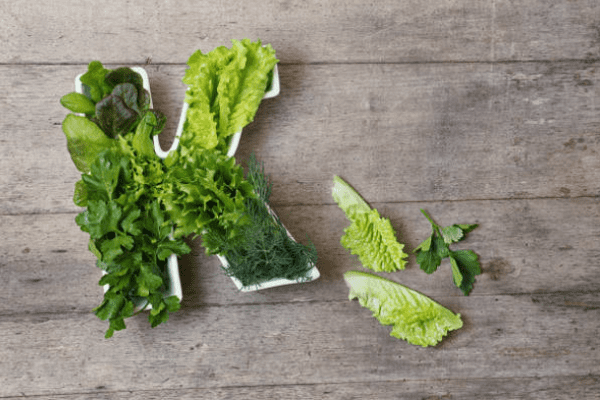Vitamins and minerals >>>> Vitamin K1 - what is it for?
Vitamin K1 - what is it for?

In multivitamin complexes you can often find an unusual vitamin - vitamin K1. What is vitamin K1 for and how is it useful for the body?
There is a group of substances that participate in the biochemical reactions of the body as vitamins and have a significant effect on the rheological properties of blood, the formation and renewal of bone tissue, and the structural characteristics of the vascular wall. These substances are collectively referred to as group K vitamins or vitamin K.
Two representatives of this group have been found in nature: vitamin K1 (phylloquinone) and vitamin K2 (menaquinone). The pharmaceutical industry has learned to synthesize the remaining members of the group of vitamins K (naphthoquinone derivatives): K3, K4, K5, K6, K7.
Vitamin K1 (phylloquinone) - is a part of green vegetables (salad types of cabbage, lettuce, spinach, broccoli, Brussels sprouts, savoy cabbage, Swiss chard, sorrel, green algae, parsley, chervil). Vitamin K1 is able to influence blood flow and vascular wall permeability - this is a protection against bleeding.
Vitamin K2 (menaquinone) is the only representative of the vitamin K group that the body itself is able to synthesize, but with the participation of intestinal bacteria. For the synthesis of vitamin K2, certain conditions are necessary: the presence of nutrient media for intestinal bacteria and the presence of the bacteria themselves. The development of intestinal dysbacteriosis against the background of intensive antibiotic therapy can lead to disorders in the synthesis of this vitamin and vitamin K deficiency accordingly. For the synthesis of vitamin K2, it is necessary to eat lactic acid foods, fats, fiber and maintain the intestinal microflora by taking probiotic cultures (cultured bacteria).
The vitamin K group is responsible for many important processes in the body:
- these are natural coagulants;
- these are substances – coenzymes involved in the synthesis of proteins;
- these are substances accompanying the assimilation of other important elements from food (in particular, the assimilation of vitamin D and calcium);
- they are builders of bone and connective tissue;
- these are the regulators of muscle and vascular activity, contributing to the relaxation of smooth muscle fibers.

In addition to edible green leafy crops, vitamin K can be found in bran, green tea and linden leaves, green fruits and vegetables, onion feathers, fodder plant tops, and nettle leaves. Natural vitamin K is formed under the action of ultraviolet radiation in the process of photosynthesis in chloroplasts of plant leaves, which explains its presence in the leaf part of plants.
Where can you find synthetic chemical analogs of vitamin K? These are pharmaceuticals: vitamin complexes, Vikasol (sodium menadione bisulfite).
Since vitamin K deficiency is rare, the vitamin itself is prescribed in cases where it is required to restore the rate of blood clotting. The antagonist of vitamin K is vitamin E, which interferes with the absorption of vitamin K. For this reason, these vitamins must be taken over a long period of time. To drugs - antagonists of vitamin K include drugs - anticoagulants.
Vitamin K is contraindicated for people suffering from a tendency to thrombosis of the blood vessels.

Read

Read



























